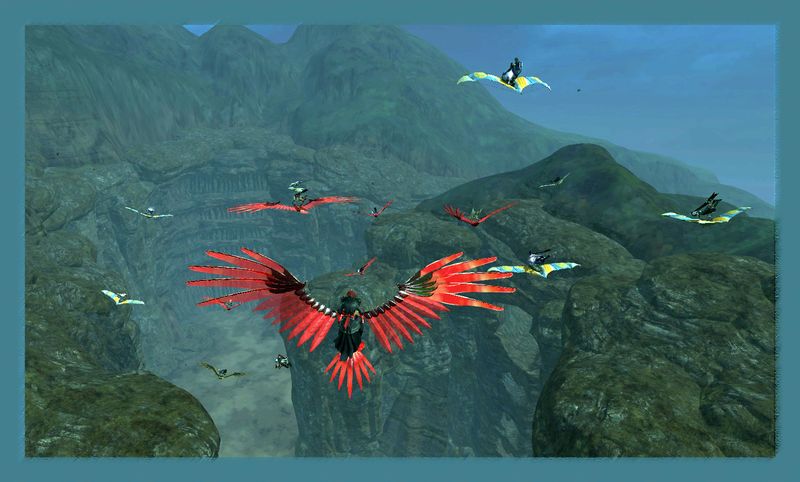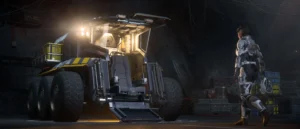You can’t put a price on recapturing your childhood. The opportunity to relive fond memories or achieve the ones that slipped by is priceless. Our favorite television shows, movies, books, and games from childhood are powerful motivators. We’re more easily tempted to spend disposable income on a second chance with these than trusting the new and unknown. It’s even more compelling when it’s tied to a fond memory. Nostalgia is a powerful drug.
In recent years, we’ve seen re-mastered games and revived IPs top the charts. Even against big, new and shiny, supported by generous marketing budgets, these older and often less sophisticated gaming titles are winning the day. Games like the Crash Bandicoot N. Sane Trilogy, Wipeout: Omega Collection and perennially remastered Final Fantasy games are making developers and publishers alike, take a more serious look at reviving successful titles of old. If there are profits, they will build it. In the face of Crash Bandicoot surpassing expectations by a wide margin, Eric Hirshberg, Activision CEO said, “You can be confident there will be more activity like this in the future…”
For the adults of today, the gaming console and PC revolution came at a time when they were young, and in most cases, lacked the funds to invest in the hobby as much as they would have liked. Unless your parents were technology geeks, which mine certainly were not, you were lucky to get a gaming console or personal computer in the first place. And the games for them came at a slow pace – birthdays, holidays and saving up your allowance.
To have a game, you had to buy the game. There were no rental shops. I sound like my grandparents, “I walked to school backward in the snow with no shoes!” The library of games at your disposal was a collection of what you and your besties shared with each other. What you owned, was yours for life if you couldn’t trade it a friend. There was no Game Stop taking in games you’d finished as credit toward purchasing a new one. For most of us, this meant that we didn’t get to play all that we would have if the opportunity to buy more were within our control.
For older adults who’ve squarely settled into the “I’m a gamer” moniker, they will spend big when they have the disposable income to support it. They’re the parents where there are multiple consoles and personal computers outfitted for gaming in our homes. They have enough games to start a rental service of their own. That’s if they’d even consider parting with them and in many cases, they won’t. Their games are stacked on shelves, labeled in boxes, soaking up hard drives and cluttering online digital libraries.
Entertainment is a big business where companies are looking to maximize profits. Funds are allocated to projects that are most likely to succeed in reaching the desired return on investment targets. The trend of capitalizing on nostalgia isn’t new, and it’s a two-way street. Adults with disposable income will throw it at things they’ve enjoyed in the past. Investors are more willing to spend on products that have a proven track record. The aforementioned doesn’t only happen in gaming. We see similar trends in other areas of entertainment such as movies. Like game development, these projects cost millions of dollars from inception to release. Taking a chance on a new unproven IP is a financial risk. If this weren’t the case, we wouldn’t see as many rehashes as we do. Honestly, how many remakes of King Kong does the world need? Planet of the Apes, The 10 Commandments, re-booting Batman again, our favorite comic book heroes starring in the small and the big screen are all predicated on this same trend, as are the proliferation of serialized books and movies. If we liked it once, we’ll take a chance on savoring it again. The money you may not have been allowed to spend back then, you’ll throw at your favorite something now.
Even with new chapters of life added, Legenda of Zelda: Breath of the Wild, is appealing to older gamers and their nostalgic love of the franchise. The release of the most recent Zelda title was so successful, that it outsold its primary target console, the Switch, by selling 2.76 million copies as of March 31, 2017. More of the game sold than the console? Yes, enthusiasts are buying multiple copies in households with a single console or buying a copy for the Nintendo Switch and the Wii U. For Nintendo, Breath of the Wild in the U.S. is their fastest-selling release title of all time and fastest-selling game in the history of the Zelda series. That’s the power of nostalgia, something no marketing budget can touch.
The ability for remastered and revived games to beat the competition isn’t confined to new games and IPs. Newer titles with a successful first release and good reviews can falter in a market where reliving our childhood is claiming our spending dollars. Dishonored 2, Watch Dogs 2 and Titanfall 2 all struggled in 2016, not hitting any of the major “Top Games of 2016” lists in an environment where Final Fantasy, Zelda, etc. were claiming market share.
On the flip side, wanting to capitalize on past glory isn’t always a path strewn with sunshine and rainbows. As I’ve said, making games cost hundreds of millions of dollars per title in development. If the studio isn’t making money in the interim, potentially big contenders will be lost by the waste side, nostalgic or not. Two games in development with legions of nostalgic fans who were eagerly awaiting a new release were Fable and EverQuest, the latter being the one of the longest-running Massively Multiplayer Online Roleplaying Game (MMORPG) in history. Both of these had their revivals abandoned in 2016. Much to the chagrin of many, I’m sure.
As an adult with discretionary funds at my disposal, I have plenty of the things I wanted as a child but couldn’t have for whatever reason. And I have none of the things I didn’t like but had plenty of because my parents said so. Oh, the joys and privilege of being an adult. It’s a good time to be a gamer. It’s a fabulous time to have money to spend on this particular hobby.
Are there games from your youth that you’re still hoping to see revived? Which are your favorites among the ones that have been given a new lease on life?










More Stories
Adventure in Salvaging
3.18 PTU Salvage
Create Your Own GameGlass Shard!